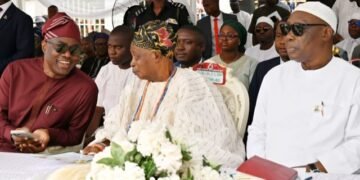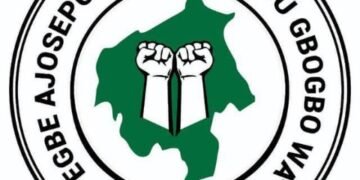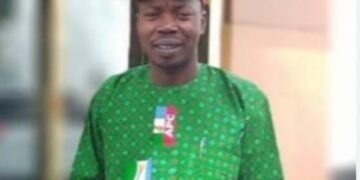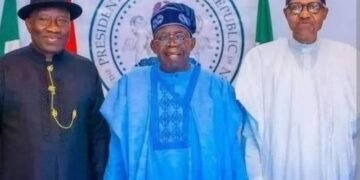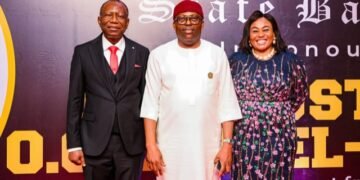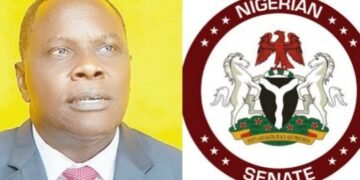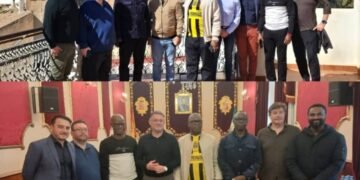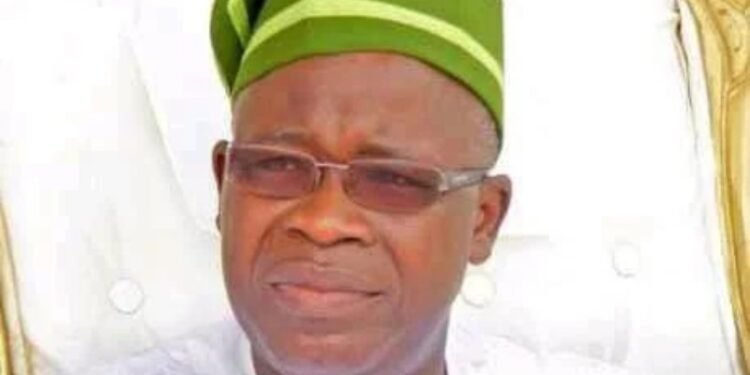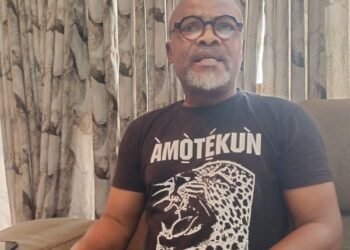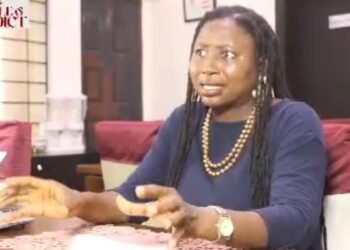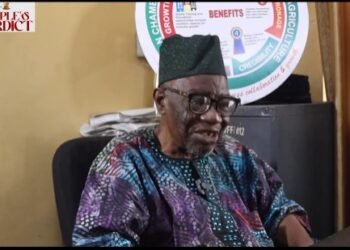Chief Jubril Dotun Sanusi is well known for his interest in sports and tourism development. Chairman/CEO of the Ibadan-based Ilaji Hotels and Sports Resort. In this interview, he speaks on his speculated ambition to be governor of Oyo State in 2027, among other issues.
Recently, you imported some electric bikes and solar-powered tricycles to the state. Given the country’s parlous electricity supply, what do you want to achieve with that?
My life is just like how I can be able to provide and solve the immediate problems confronting the people in the society where I live and looking at the cost of running households, given the cost of running businesses and the cost of running the entire society. A typical example is Ilaji Hotel and Sports Resort in Akanran, of which I am the CEO. The hotel was using between N4million and N5million on diesel like a year ago, but now we use N80million N100million in a month. That is not a way to run a system, because it is not profitable.
So, in the course of seeking a way out, I invited some of my business partners, the Chinese, and we asked ourselves what we can do. We thought of hydroelectric and other sources but, at the end of day, solar electric was the cheapest option. So, we opted for it.
We bought valves for all generating sets and the valve allows us to switch between gas and diesel but, along the line, the price of gas went up. So we settled for solar.
The tricycles with solar-powered systems that you talked about have been designed and they are currently in Ilaji now. The tricycle can accommodate between seven and 11 passengers and they are all working perfectly. And all the bikes are working too. They are rechargeable with electricity and that is cheaper.
In view of electricity supply, how convenient is it?
Well, it is practical and we are running it. I invited the Park Management System (PMS) of Oyo State and asked them work with us on this. I gave them the electricity type and the solar-powered ones and said, let’s make use of these and we started a pilot programme for three months. I involved the banks so that they can do their due diligence before releasing the products. That shows that the cost of the bike or vehicle will be taken care of by the banks. And if anything goes wrong, the insurance will come in.
I said, if I give the bikes and tricycles to the PMS, there are existing parks where we can distribute the charging systems and if we fully charge a bike, it can take you from here in Ilaji to somewhere like Mountain of Fire on the Lagos-Ibadan Expressway; that’s a distance of about 100 kilometres or more.
So we need to have a charging point between Mountain of Fire and Lagos, in case we deploy it on inter-state routes. Then the next one is about the solar-powered tricycle which is able to pick many people. For that one, as long as there is radiation from the sun, it can be powered.
Now, the plan is that, as we give out these products to people, the banks will come in as intermediaries in case anything happens, God forbid. That is also why we are involving the insurance company. We are still in the piloting phase and we have done that for one month. Our plan is that inside Ilaji Resort, there will be an assembling plant to couple the tricycles here, experiment and then give them out. So far so good, it is going well.
How far do you want to go with this transport initiative? Is it only for Ibadan metropolis or the state?
The plan is to start little and check what the challenges are. Like the tricycle, we found out that we need to make some adjustments. Because we don’t have good roads in Nigeria and because of the load it will carry, we had to add springs to its weight component. I’ve told the Chinese counterparts who designed it to add springs so that the people using it for commercial purposes can use it effectively.
If I have the means, I can do all the road networks to the standard they have in other countries, but we have to factor the Nigerian peculiarities. I want something that is sustainable, but we are starting this as a pilot scheme to encourage those in government to see that something like this can be done and replicated for the benefit of people of the state.
If you go to America and the UK, the price they sell fuel is higher than what we have here in Nigeria but there are alternatives there. If you cannot afford to buy petrol, you have subsidised buses, provided by the government and there are trains too.
So, I believe there should be alternative mode of transportation so that everybody won’t have to depend on petrol. You can buy ticket for train or for bus at your own will. Even over there, it is not everybody that can afford Bolt or Uber, but you can still buy bus pass and go wherever you want. The only thing is that you will deny yourself the comfort of being in your house and waiting for a car to pick you. But if you don’t have alternative and everybody depends on just one product, such society cannot function and thrive well.
Some people are saying that most of your projects are sited in Ona-Ara. For instance, the last time you gave out transformers and boreholes, they were given out to majorly communities in Ona-Ara…
My projects are not only concentrated in Ona-Ara and this too will not be for only Ona-Ara people. If you go to Elebu in Ido Local Government Area, the concrete roads there were constructed by me. You can go and investigate and you will discover that the only roads that have stood the test of time and didn’t collapse are the roads constructed by me. So I’ve been touching many other areas but it is a matter of necessity.
The way I’ve been reaching out to communities is not a sign that I favour Ona-Ara. No! The reason we started with what people called bulky projects in Ona-Ara is because, for 17 years before I came to Ona-Ara, the area was cut off from the national grid. Only Olorunsogo side had electricity.
Today, you are able to see power supply on your way to this place because I started buying transformers to fix the power problem. It will interest you to know that to connect these areas back to national grid, I didn’t spend less than N291 million and I will continue to do things according to my capacity. Initially, I promised the communities that only those along the road to Ilaji Resort would benefit, but it has expanded far more than that.
Let me tell you my experience during the campaigns for 2023 elections. When I started talking to people in the communities to support Asiwaju Bola Ahmed Tinubu for the presidential election, a lot of grassroots stakeholders in Oyo State came to me and said, I’ve reached certain areas, but I’ve not reached their side. So, we have been expanding the reach. When we started these interventions, my thought was that we will be able to garner support from both federal and state governments, but we are still hopeful.
On our list now, we have more than 130 communities seeking assistance on electricity and each community has no fewer than 10 to 20 thousand inhabitants. So, to answer your question, we have touched many areas outside Egbeda/Ona-Ara. In some areas that already have transformers, I do support them with maybe N5million or N10million to complement their efforts. But I can only do things according to my capacity. So, we have touched many other areas and we are still continuing.
You issued a statement recently that those clamouring for you to contest the 2027 governorship election should step down the campaign. What informed that statement?
Yes, I issued a statement that people should soft-pedal on their clamour, but the more I say it, the more they clamour for the same cause. They have already said they will be the ones to take the lead, to the extent that all the baales in Ibadan contributed money and put it inside a sack and brought it to me here. They said they were not even expecting me to only spend the money but they are ready to contribute to make it happen. And that was the biggest shock of my life.
They are not relenting. And if you check their slogan, it is “otoge, eje ki mekunnu o mi”, which means ‘let the poor breathe; enough is enough’. They no longer want to be caged. They want a situation whereby they want somebody they can believe in to help them salvage the situation and turn things around. And they said I have all it takes already. Up till now, I have not issued a contrary statement, but the people decided to forge ahead.
Anytime I am around, you see them here and they have continued to spread the gospel of Jubril Dotun Sanusi (JDS). So, the voice of the people is the voice of God. I have already given them an assignment and they are on the mission. And they are not ready to compromise their mission at all. People from different religious faiths are just trooping in.
It is a different thing if I am the one giving them money, but they are the ones providing the money themselves and forging ahead in their mission. If about two million people are able to gather here to say this is what they want in Oyo State. I don’t think there is anybody in Oyo State that two or three million people can come out and say that they want him. Every human being has his breaking point. If that is what they are saying, then let us see what will happen.
You said you are not a card-carry member of any party but you influenced the election of President Tinubu of APC and Governor Seyi Makinde of the PDP all in 2023. If any of these two parties approach you, what will be your position?
My position as of now is that JDS is a movement. It will not be a single person’s decision; the people of Oyo State will decide because they are all stakeholders and they have their terms. The artisans have what they want; the market women have what they want. The Hausa community and all the non-indigenes have what they want. So, I believe they would be able to collate all these needs together with a unified voice to say this is where we are going. I am just a messenger.
So, how do you feel when people say you made us support this or that candidate in 2023 and now we are hungry?
That statement always pushes me into a tight corner; but I don’t regret supporting them, and that was why I vowed that I will never abandon the people, even if it remains a penny in my pocket. That is why my gate is always open. I have to convince them that the suffering and hardship will be over.
I believe that Governor Seyi Makinde will do better and I believe that President Tinubu is trying his best in the circumstance, but somehow, we still have hunger in the land. So, what I do is this: the little I have we eat together, we share together
It was said that you once initiated an agric project in Asejire to help the poor but somehow the same people you assisted ended up looting the farm and the equipment. Are you not disappointed over the development?
I’m not disappointed or discouraged because there is a thing we call ‘necessity corruption’. Necessity corruption is based on the needs of the people. When we were growing up, we were always happy whenever my granddad, who was a farmer, took us to the farm. So we would carry all the farm produce. White people call that child labour, but the same white people teach their children ICT from age six. Everything is about narratives. They say “police is corrupt” but I believe that most of the corruption we are seeing is ‘necessity corruption’.
I have grown my life to the extent that I don’t have a life of regret. I don’t even get discouraged. You say somebody is corrupt, but these are people who are corrupt because of hunger or other necessities. For example, I employ somebody as a security person and pay him N40,000 as salary. His house is at Olorunsogo. He spends N2,000 daily to come to work for the 30 days in a month. He will eat and do other things and you allow him to be in charge of food in the kitchen. Do you think such a person will not steal from the food? So, that exactly is what I meant by ‘necessity corruption’. It is the nature of the policy of the society. But if he is collecting N30,000 and all his expenses are not more than N10,000 he will have more money to take care of himself.
In this same Nigeria (some years ago), there was nothing like kidnapping. There was nothing like robbery. When you go out for some social events, the same cartons of Bournvita, milks that are now expensive were what people used as gifts then. These days, you can hardly give anyone a tin of milk. There are certain things that make people corrupt. Until we address some policies, that is when we can reduce the corruption in our society. And when you want to do this thing, it depends on the name you give to it.
If you read the Bible, people made us believe certain things. When you see a saint, they attach it with white. When some see black, they say it is the devil. It was people that wrote these things and gave them the names, but it is a matter of colour.
The story of your philanthropy is all over the place. Is there anything in your childhood that motivated you?
You see, my mum didn’t go to school, but she trained so many people in school. Because she didn’t deprive me the privilege of going to school shows the kind of heart she had. And while growing up, I didn’t witness a day when my mum would cook only for her biological children. So what I learnt is that, don’t eat alone, think about others. I think it is in my nature because I don’t like doing things alone. I like bringing people around me. Serving humanity is a thing that gives me joy.
Looking at growing security situation in the society, including Ibadan, what advice do you have for the people in authority and the community?
I think we have to cultivate our traditional setup, the way our society was set up. In Ibadan, for instance, there is a way Ibadan was designed. And if the government can key into that, it will be very good. Other parts of the state also have a social structure that can help combat insecurity.
In Ibadan, each head of the family is called mogaji and each head of the village is called baale. So if anything happens in the village, the baale works hand in hand with the mogaji and they reach out to the king, the Olubadan. The family altogether is what makes up the city and the society. Then there should be accountability so that anything that happens in the family, the mogaji who is the head will be held responsible. If anything happens in the village, the baale will be held responsible but now look at our institutions there is no accountability.

